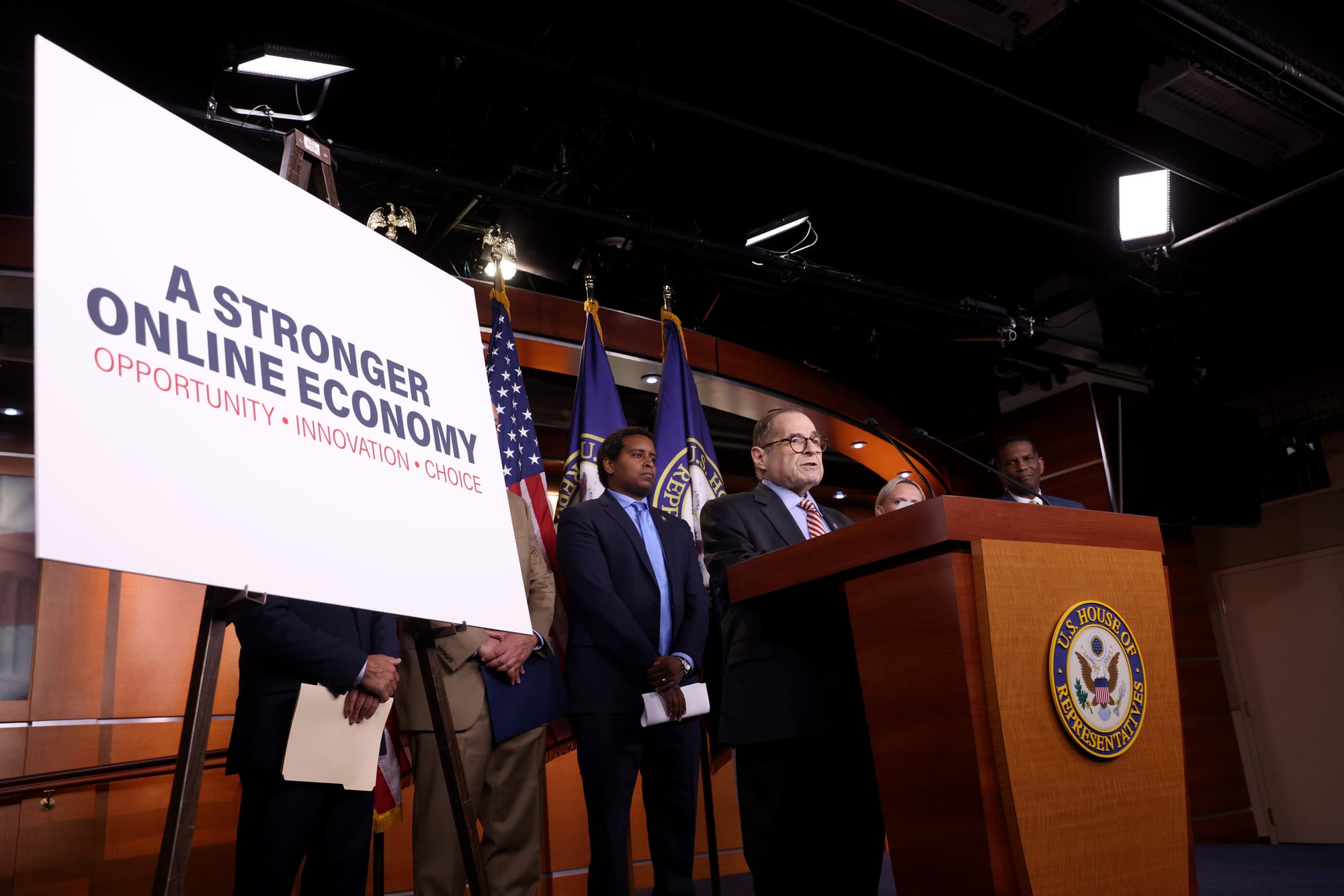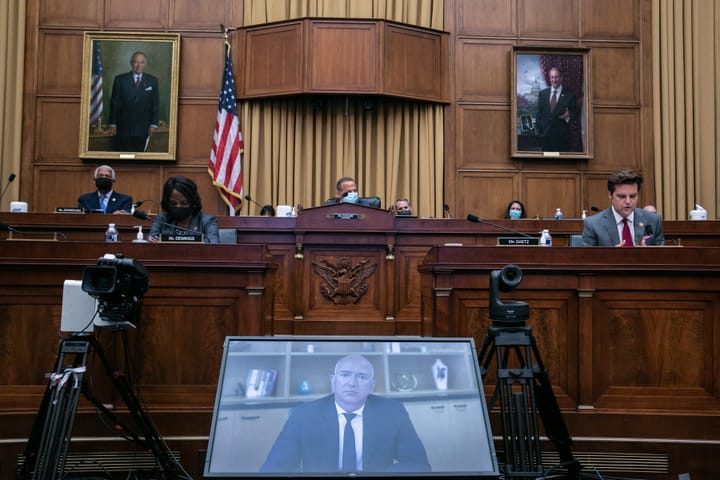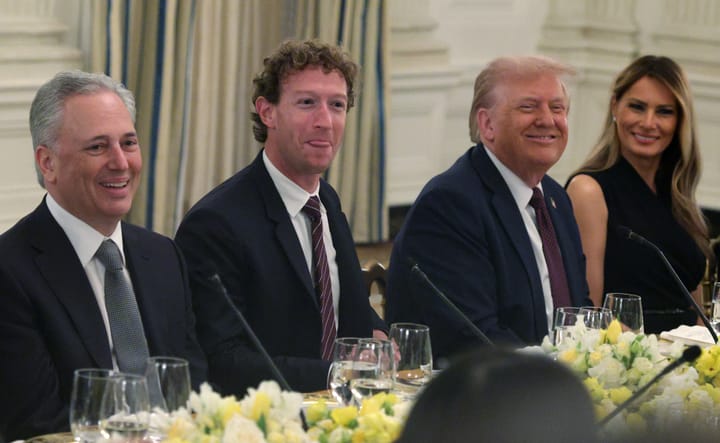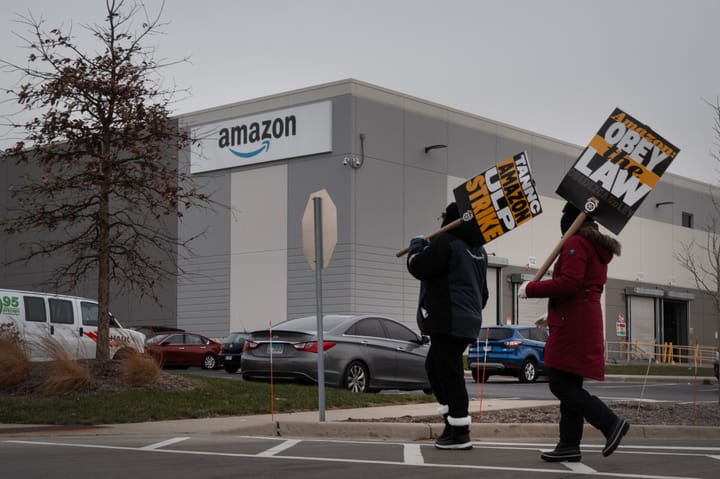Even for people who read a lot of political news, the workings of Congress can seem stubbornly closed off from public scrutiny. Capitol Hill news stories commonly mention “huge lobbying battles,” but lobbyists are only required to disclose their activity quarterly and in very broad terms, so the actual spending on lobbying remains hidden to just about everyone.
This month, newsreaders heard of such a furious lobbying blitz around a sweeping package of antitrust bills that would curb the market power of the biggest tech companies. All six bills in the package were approved by the House Judiciary Committee last week in an intense markup session, teeing them up for votes in the House.
It will be over three more weeks, around July 20, until Big Tech watchdogs have access to official information about how much money tech industry trade associations and behemoths like Amazon spent on lobbying in the second quarter. Lobbying from Big Tech to defeat the package was described as “a full-court press,” and after the vote, lobbyists howled that the bills were rushed.
The most contentious of the bills, the Ending Platform Monopolies Act (H.R. 3825), passed by 21-20, with several representatives who had cast votes in the committee the day before not taking part in the climactic vote. The measure, sponsored by Rep. Pramila Jayapal of Washington, would allow federal regulators to sue to break up tech giants that sell their own offerings on a dominant platform they own, restoring competition—and potentially affecting Amazon’s marketplace, Apple’s App Store, and Google’s YouTube service.
While the package’s approval was supported by the Biden administration, according to The Wall Street Journal, the White House cautioned that further refinement of the legislation is in order. Antitrust policy group the American Economic Liberties Project (AELP) expressed concerns that the bill’s language could be interpreted too narrowly.

Weighing the package of two general antitrust bills and four tech-targeted ones, AELP director of research and former congressional staffer Matthew Stoller wrote last Friday in his newsletter, “This isn’t the end of the process, but it’s the first Congressional vote to actually restructure powerful firms since the 1996 Telecom Act, and the first real Congressional attack on concentrated corporate power since the Bank Holding Company Act Amendments of 1970.”
The official disclosures won’t capture the formidable influence campaigns around the committee’s vote: this month, a “swarm” of more than a dozen think tanks and advocacy groups—with funding from tech companies—warned that the legislation would have undesirable effects on consumers and innovation.
One prominent pro-Big-Tech letter, signed by 13 nonprofits, was led by the new industry trade group Chamber of Progress, founded by a former Google lobbyist and funded partly by Amazon, Google, and Facebook. Earlier this year, Rep. Ami Bera (D-Calif.) cheered the group’s launch in a press release, an unusually-public welcome mat for a public officeholder, even coming from the chair for outreach of the moderate, business-friendly New Democrat Coalition. Around 45% of Bera’s nearly $1.9 million raised in the 2020 election cycle, counting his campaign and leadership PAC, came from corporate PACs, according to data from OpenSecrets.
On June 18, eight members of the New Democrat Coalition’s leadership sent a letter to House leaders calling for the Judiciary Committee to pump the brakes on the antitrust package and hold hearings before it moves to the full House. The New Dems’ position, Bloomberg reported, was similar to that of trade group Computer & Communications Industry Association, of which Amazon, Google, and Facebook are members.
In the 2018 and 2020 election cycles, the New Dems’ PAC took donations from hundreds of corporate PACs, including totals of $20,000 from Amazon, $17,500 from eBay, $20,000 from Google, $26,000 from Microsoft, $15,000 from Salesforce, and $2,500 from Yahoo!. The chair of the New Democrat Coalition, Rep. Suzan DelBene of Washington, counts the PAC and employees of Microsoft and Amazon as her top two contributors last cycle, giving nearly $95,000 between them. Nearly 44% of DelBene’s total funding to her campaign and leadership PAC came from corporate PACs in the 2020 cycle, according to data from OpenSecrets.
In the committee’s 21-20 vote, three of the four Democratic ‘nay’ votes came from representatives from tech industry-heavy California: Lou Correa, a member of the conservative Blue Dog Coalition; Zoe Lofgren, who represents most of San Jose; and Eric Swalwell, whose House website says he leads the Democratic Policy & Communications Committee’s outreach to millennials. They were joined in opposition by Democrat Greg Stanton of Arizona. Two Republicans, Ken Buck of Colorado and Matt Gaetz of Florida, voted ‘aye’ on the bill boosting breakup powers.
In the 2020 election cycle, communications and electronics industry PACs loaded up on donations to Lofgren, sending her campaign nearly $129,000, including PAC donations of $10,000 from Facebook and Google, $5,500 from Amazon, and $2,500 from eBay and Salesforce. Correa received PAC contributions of $5,000 from Amazon and $4,000 from Google, according to OpenSecrets.
Over a decade ago, good-government groups pushed to bring Congress into the internet era and make lobbying reports digital, instead of locked in scanned paper forms, but transparency reforms stalled under both parties. The power plays of Big Tech lobbyists and obscure trade associations in the legislative process still haven’t been brought to the fingertips of smartphone and internet users. Future House leaders could institute real-time disclosure of lobbying, the kind that could trigger alerts to reporters and activists with a wealth of connected data about public policy making.
Originally posted at The Brick House Cooperative



